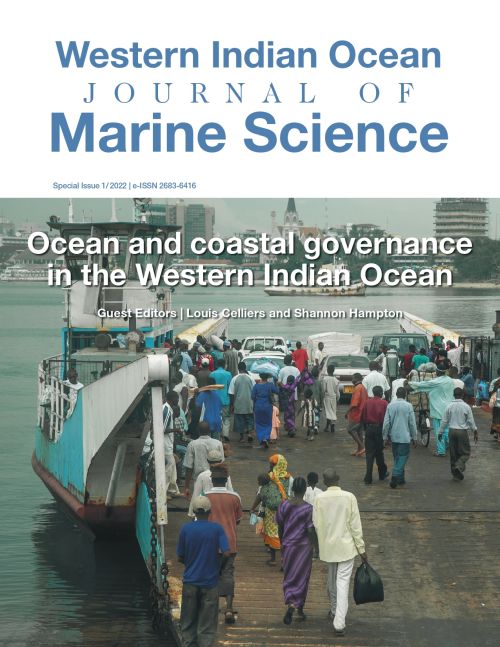Main Article Content
Every account counts for sustainable development: lessons from the African CoP to implement ocean accounts in the Western Indian Ocean region
Abstract
The Western Indian Ocean (WIO) is critical in supporting the social and economic development of the nations it borders. To safeguard the various opportunities it provides, it is essential to adopt sustainable ocean development models that balance ocean wealth and ocean health. Such models depend on evidence-based and adaptative ocean governance underpinned by holistic social, environmental and economic indicators. The ocean accounts framework provides a standard accounting structure to integrate social, economic and environmental information in alignment with relevant international statistical standards such as the System of National Accounts and the System of Environmental-Economic Accounting. Applying such a framework produces integrated indicators against which changes can be assessed and measured. These indicators also inform decision-making and support the prioritisation of areas requiring further attention by highlighting data deficiencies, ocean governance gaps and under-explored research areas. The framework encompasses and links several systems of accounting that can be used based on specific priorities. However, three initiation points have been identified that can be further expanded and concatenated into other accounts encompassed by the framework. This publication provides practical guidelines to start implementing national, regional or local ocean accounts, following the Global Ocean Accounts Partnership Technical Guidance on Ocean Accounting. It is further complemented by amendments proposed by the African Community of Practice based on lessons learned during the implementation of ocean accounts pilots across the WIO region. Compiling ocean accounts is an adaptative and iterative process and should be constantly ameliorated and adjusted to local contexts and priorities. However, efforts should be made to maintain coherence with the framework and international standards.




